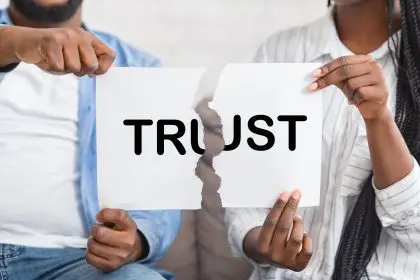The search for love has migrated primarily to screens, with dating apps becoming the dominant pathway to romantic connection. Over 30% of American adults have used a dating app or site, transforming how people meet potential partners. Yet despite this technological revolution, many users report increasing frustration with digital dating experiences. The disconnect between technological promise and emotional reality creates challenges for singles navigating this landscape, but research suggests strategic approaches can significantly improve outcomes.
The paradox of modern dating
Dating apps promised to make finding love easier, but many users experience the opposite. The current dating landscape presents a fundamental paradox: more access to potential partners has not translated to easier pathways to connection.
The average dating app user spends approximately 90 minutes daily swiping, scrolling and messaging. Despite this significant time investment, satisfaction rates remain surprisingly low. Dating fatigue has become so prevalent that relationship therapists now regularly treat clients specifically for app-related burnout.
The mechanics of these platforms often work against meaningful connection. Interface designs borrowed from gaming psychology encourage rapid judgment and constant pursuit of novelty. Algorithmic bias frequently reinforces existing patterns rather than facilitating new possibilities. These structural elements contribute to what sociologists term “the paradox of choice” – where abundant options lead to decision paralysis rather than satisfaction.
5 insights for finding authentic connection
Recognize the medium’s limitations
Dating apps excel at introducing strangers but perform poorly at building connections. Understanding this fundamental limitation helps users develop more effective strategies.
Relationship experts recommend viewing apps merely as introduction tools rather than the full dating experience. The most successful users quickly move conversations to video calls or in-person meetings, recognizing that chemistry cannot be accurately assessed through text exchanges.
Approaching digital dating with realistic expectations proves crucial. Research shows users who understand the statistical realities of match rates experience less frustration and make more deliberate choices about time investment.
Craft authenticity into profiles
Generic profiles generate generic responses. Analysis of successful dating profiles reveals specificity and authenticity significantly outperform broad appeal strategies.
Dating coaches advise against creating profiles aimed at maximum appeal. Instead, they recommend thoughtful presentation of distinctive interests, values and personality traits. This approach attracts fewer but more compatible matches, improving conversion from matches to meaningful conversations.
The most effective profiles balance honesty with strategic presentation. Communication researchers find that profiles revealing genuine passions, specific humor styles, and clear relationship intentions attract partners with complementary qualities rather than superficial matches.
Develop meaningful filtering systems
The overwhelming volume of potential matches necessitates effective filtering. Users who develop personalized screening systems report greater satisfaction with dating experiences.
Successful daters learn to identify meaningful compatibility markers beyond surface characteristics. Conversation patterns reveal values and emotional intelligence more effectively than profile statements. Communication style compatibility often predicts relationship potential better than shared interests.
Relationship scientists recommend focusing early conversations on future orientation, emotional processing styles, and conflict resolution approaches. These elements provide deeper compatibility information than traditional first-date topics.
Balance digital and analog approaches
The most successful modern daters maintain multiple pathways to potential connection rather than relying exclusively on applications.
Dating strategists advocate for supplementing digital approaches with in-person opportunities. Social activities centered around genuine interests naturally filter for compatibility while removing the artificial pressure of explicit dating contexts.
Community involvement consistently ranks among the most effective complementary strategies. Volunteering, special interest groups, and recurring social events create organic opportunities for connection without the evaluative pressure of dating contexts.
Practice intentional engagement
Mindless swiping produces mindless connections. Users who approach dating apps with intention and presence report markedly different experiences than those engaging habitually.
Relationship coaches recommend dedicated dating app sessions rather than fragmented attention throughout the day. Setting specific timeframes for engagement prevents the addictive patterns apps intentionally cultivate and preserves emotional energy.
The most effective approach involves alternating periods of active engagement with complete breaks. This rhythm prevents burnout while creating space for coincidental connections beyond digital platforms.
The psychology behind unsuccessful patterns
Understanding why common dating behaviors fail helps users avoid these patterns. The psychology of unsuccessful digital dating often involves several identifiable elements.
Validation seeking represents one common trap. Many users unconsciously prioritize the temporary ego boost of matching over genuine connection potential. This pattern leads to collecting matches rather than developing relationships with existing connections.
Perfection pursuit constitutes another problematic pattern. The illusion of unlimited options encourages dismissing promising connections for minor imperfections. Relationship psychologists refer to this as “maximizing” behavior, which correlates strongly with dating dissatisfaction.
The speed of digital interfaces also encourages premature dismissal. Research indicates most users make swiping decisions in less than three seconds per profile, prioritizing immediate visual impact over substantive compatibility factors.
Navigating vulnerability in digital contexts
Meaningful connection requires vulnerability, yet digital dating environments often feel emotionally unsafe for authentic disclosure. Successful daters develop strategies for appropriate vulnerability that balance openness with boundaries.
Relationship researchers recommend gradual disclosure patterns that match vulnerability levels between partners. This reciprocal sharing builds emotional intimacy while maintaining appropriate pacing.
Developing clear boundaries proves equally important. Effective digital daters establish personal standards for information sharing, meeting timelines, and communication expectations. These boundaries protect emotional wellbeing while creating space for authentic connection to develop.
The future of digital connection
Despite current frustrations, technological matchmaking continues evolving in promising directions. Next-generation platforms increasingly incorporate elements addressing current limitations.
Video-based introduction features reduce the gap between digital perception and in-person reality. Event-focused apps create structured opportunities for authentic interaction beyond messaging. Community-centered platforms aim to replicate the organic connection opportunities that historically led to successful relationships.
The most encouraging development may be increasing user awareness. As digital natives mature into relationship-seeking adults, collective wisdom about effective engagement with these platforms grows. This evolution suggests the future of digital dating may better balance technological efficiency with human connection needs.
Finding love has never been simple, but the digital era presents unique challenges and opportunities. By approaching dating apps with intention, authenticity and realistic expectations, users can navigate beyond superficial swiping toward meaningful connection. The most successful digital daters recognize that while technology can facilitate introductions, human connection still requires the timeless ingredients of vulnerability, patience and genuine curiosity about another person’s inner world.

















